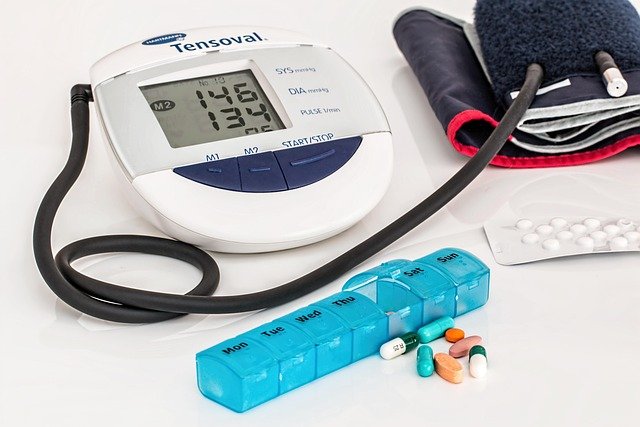Kidney Disease Treatment: Understanding Medications and Their Impact
Kidney disease is a complex condition that affects millions of people worldwide. As the kidneys play a crucial role in filtering waste and excess fluids from the blood, maintaining proper treatment is essential for those with kidney disease. This article explores the various medications used in kidney disease treatment, their effects, and important considerations for patients and caregivers.

-
Angiotensin Receptor Blockers (ARBs): Similar to ACE inhibitors, ARBs help protect the kidneys by lowering blood pressure and reducing proteinuria.
-
Diuretics: Also known as “water pills,” diuretics help remove excess fluid from the body, reducing swelling and lowering blood pressure.
-
Phosphate Binders: These medications help control phosphorus levels in the blood, which can become elevated in kidney disease patients.
-
Erythropoiesis-Stimulating Agents (ESAs): These drugs help treat anemia, a common complication of kidney disease, by stimulating red blood cell production.
How do NSAIDs affect kidney function?
Non-Steroidal Anti-Inflammatory Drugs (NSAIDs) are commonly used for pain relief and reducing inflammation. However, they can have significant effects on kidney function, especially in individuals with existing kidney disease:
-
Reduced Blood Flow: NSAIDs can decrease blood flow to the kidneys, potentially worsening kidney function.
-
Fluid Retention: These drugs may cause the body to retain sodium and water, leading to swelling and increased blood pressure.
-
Acute Kidney Injury: In some cases, NSAIDs can cause acute kidney injury, particularly in individuals with pre-existing kidney problems or those taking other medications that affect kidney function.
-
Interactions with Other Medications: NSAIDs can interact with other drugs used in kidney disease treatment, potentially reducing their effectiveness or increasing side effects.
Given these potential risks, patients with kidney disease should consult their healthcare provider before using NSAIDs and explore alternative pain management options when possible.
What are the potential side effects of kidney disease medications?
While medications are crucial for managing kidney disease, they can also cause side effects. Some common side effects associated with kidney disease medications include:
-
ACE Inhibitors and ARBs:
-
Dry cough
-
Dizziness
-
Increased potassium levels
-
-
Diuretics:
-
Dehydration
-
Electrolyte imbalances
-
Increased urination
-
-
Phosphate Binders:
-
Constipation
-
Nausea
-
Abdominal discomfort
-
-
Erythropoiesis-Stimulating Agents:
-
Increased blood pressure
-
Headaches
-
Flu-like symptoms
-
It’s important for patients to discuss any side effects with their healthcare provider, as adjustments to medication dosages or types may be necessary to minimize adverse effects while maintaining effective treatment.
How can patients manage their medication regimen effectively?
Managing multiple medications for kidney disease can be challenging. Here are some strategies to help patients stay on track with their treatment:
-
Use a pill organizer: Sort medications into a weekly or monthly pill organizer to ensure proper dosing and timing.
-
Set reminders: Use smartphone apps or alarms to remind you when it’s time to take your medications.
-
Keep a medication list: Maintain an up-to-date list of all medications, including dosages and schedules, to share with healthcare providers.
-
Communicate with your healthcare team: Regularly discuss your medications with your doctor or pharmacist, and report any side effects or concerns promptly.
-
Avoid self-adjusting: Never change your medication dosage or stop taking a medication without consulting your healthcare provider first.
-
Learn about drug interactions: Be aware of potential interactions between your medications and certain foods, supplements, or over-the-counter drugs.
What role do lifestyle changes play in conjunction with medication?
While medications are a crucial component of kidney disease treatment, lifestyle changes can significantly impact overall health and disease management:
-
Diet: Following a kidney-friendly diet low in sodium, phosphorus, and potassium can help manage symptoms and slow disease progression.
-
Fluid intake: Monitoring and adjusting fluid intake as recommended by your healthcare provider can help prevent fluid overload and associated complications.
-
Exercise: Regular physical activity, as approved by your doctor, can help maintain overall health and manage blood pressure.
-
Smoking cessation: Quitting smoking can improve overall health and reduce the risk of cardiovascular complications associated with kidney disease.
-
Stress management: Practicing stress-reduction techniques like meditation or yoga can help improve overall well-being and potentially reduce blood pressure.
By combining appropriate medications with these lifestyle changes, patients can optimize their kidney disease treatment and potentially improve their quality of life.
In conclusion, kidney disease treatment often involves a complex regimen of medications and lifestyle modifications. Understanding the types of medications used, their potential side effects, and how to manage them effectively is crucial for patients and caregivers. By working closely with healthcare providers and adhering to prescribed treatments, individuals with kidney disease can better manage their condition and maintain their overall health.
This article is for informational purposes only and should not be considered medical advice. Please consult a qualified healthcare professional for personalized guidance and treatment.






